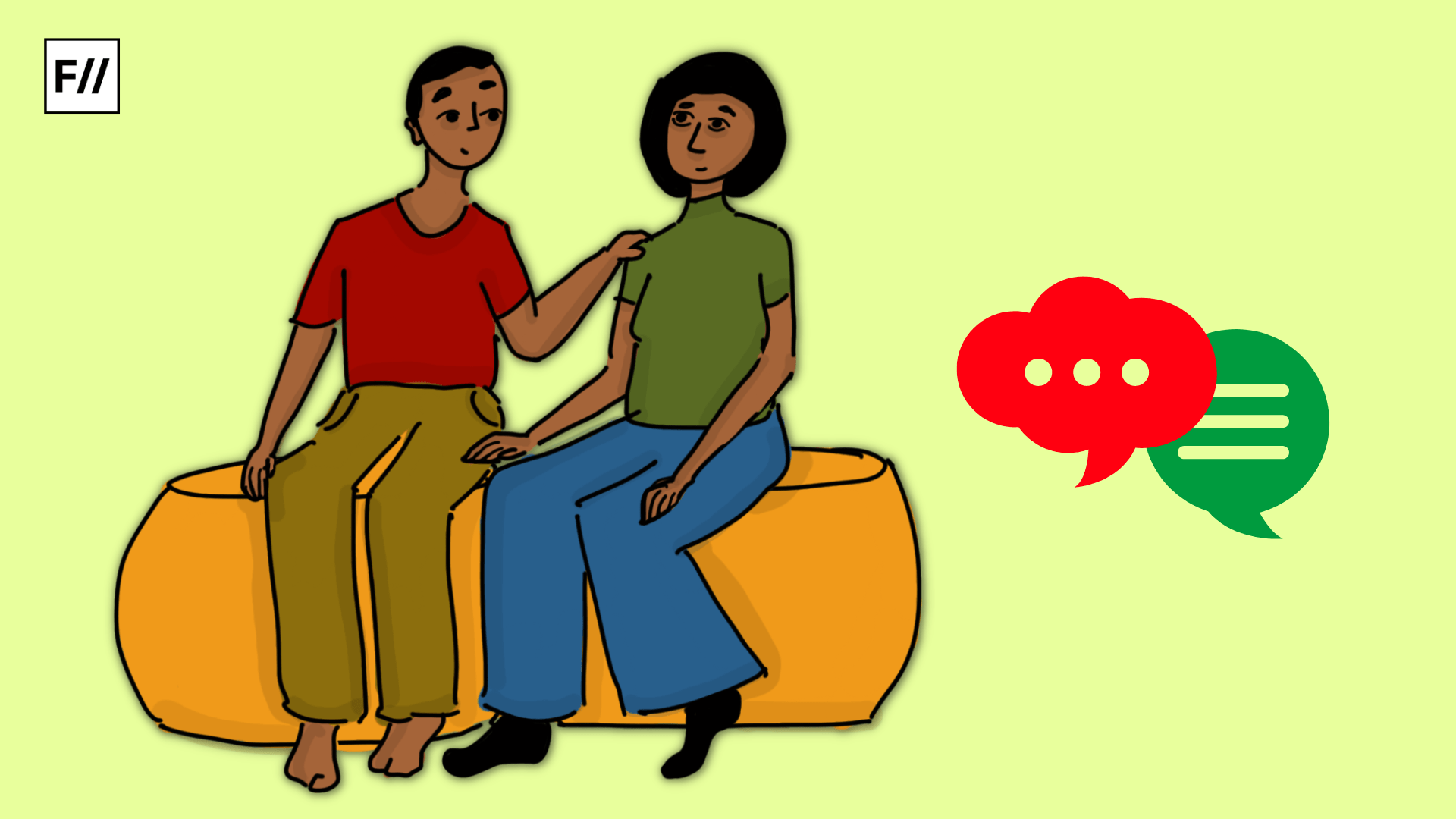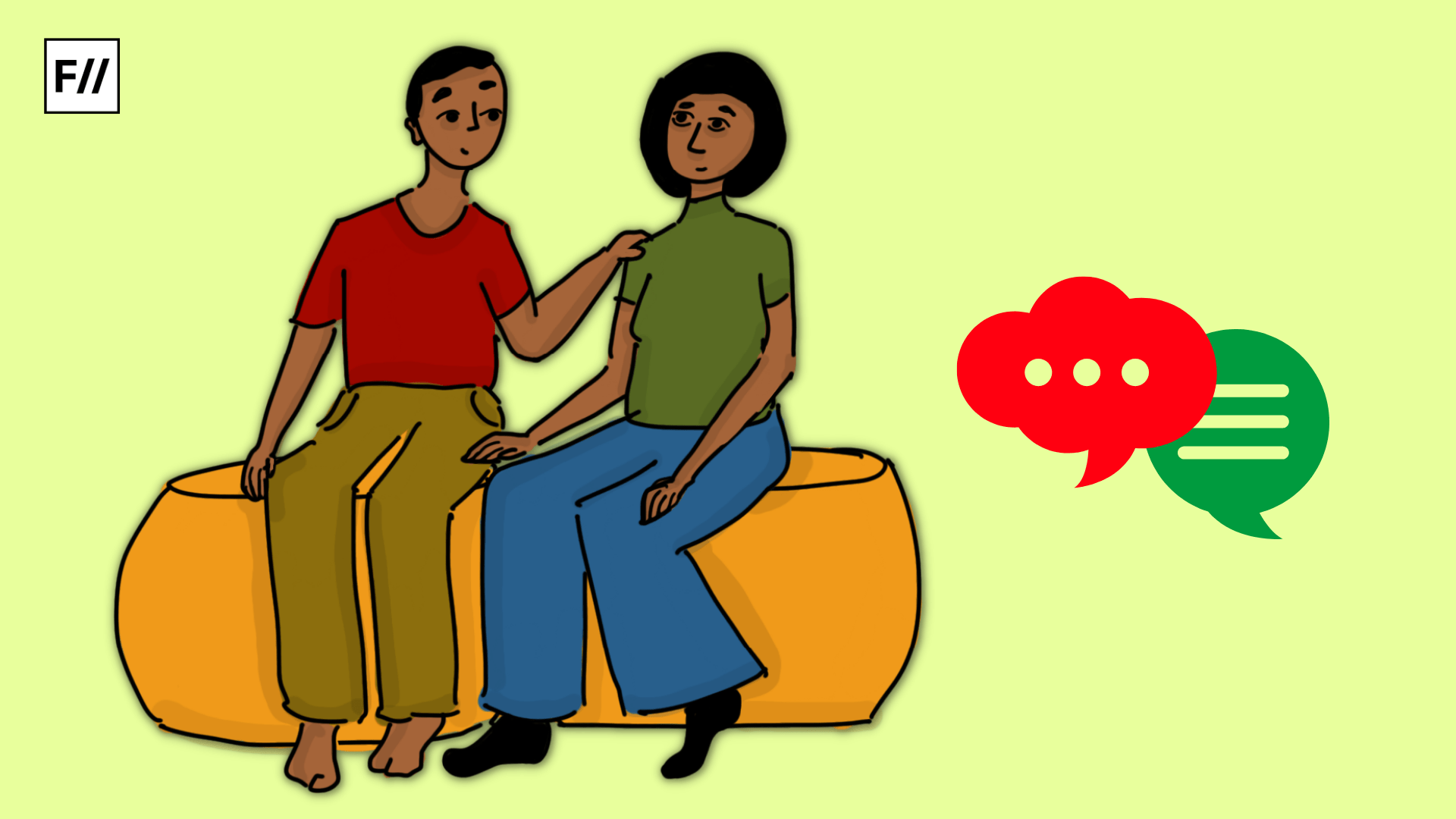Consent can be crudely understood as permission to do something. Sexual consent has been mainly restricted to ‘yes’ and ‘no.’ However, it needs to be understood that consent and especially, the sexual consent of a woman is something which is ridden with stereotypical understandings of gender roles and sexuality.
The legal understanding of sexual offences depends majorly on consent (at least, in the written word). Be it rape, sexual harassment or molestation, the absence of consent of the woman conclusively establishes that a sexual offence has been committed. The question is why so much focus on mutuality? What makes consent to a sexual act so essential?
Also Read: 7 FAQs On Law, Sexual Violence And Section 375 & 376 Of The Indian Penal Code
Consent has been associated with autonomy of an individual over oneself. When discussed specifically in the context of sexual activities, it usually determines the ‘rightness’ or ‘wrongness’ of other’s sexual advances to oneself. Therefore, consent can be understood as a line that an individual draws while exercising the right to sexual autonomy.
There is an alternative perspective to understanding consent which questions the idea of it being solely an act of individual volition. It brings to light that by ignoring the material conditions which make the choices of an individual meaningful, the individualised understanding of consent assumes that the mind is the single determining factor. Autonomy is a power which can be expressed only when there are social relations that support its expression; and are also dependent on an individual developing an internal sense of feeling autonomous. That is why, a sense of sexual autonomy can be developed with the help of social conditions which respect bodily autonomy.
Also Read: Lines of Consent: “Only Yes means Yes,” If Society Says So
Another perspective of understanding consent is that it should not only be understood as women answering a question, but also as asking one; that sexual encounters are highly mutual in which no party really takes an active or a passive role. This perspective does not restrict women to the role of a passive party, whose only job is to give an ‘answer’ in the form of a ‘yes’ or a ‘no.’
In all these arguments, the main idea is the emphasis on mutuality of the parties involved in a sexual encounter, an understanding of willingness which does not presuppose roles: the man being the one to seek consent and the woman being the one to ‘answer.’ Assigning roles is just another way of restricting sexuality to gender-specific assumptions.
To begin with, a woman’s willingness or unwillingness is not considered important at all. This is because it is considered a woman’s ‘duty’ to offer sexual favours to men; especially in cases of matrimony. This argument is often cited against the criminalisation of marital rape; as written by an English lawyer Matthew Hale in the 1600s, “ But the husband cannot be guilty of a rape committed by himself upon his lawful wife, for by their mutual matrimonial consent and contract, the wife hath given herself in kind unto the husband, whom she cannot retract.”
Also Read: Dear Mrs. Maneka Gandhi, Marital Rape Is Rape. Period
It is also believed that women are always willing but should not say it out loud. So, a ‘no’ does not really mean a refusal but that she is being well-mannered. That women actually mean ‘yes’ when they say ‘no’ is a rather old belief, and an example of the same can be found in Jane Austen’s classic novel Pride and Prejudice (1813), which is also constantly sold by big Bollywood movies. There is an instance in the initial parts of Pride and Prejudice in which Mr. Collins proposes marriage to Ms. Elizabeth Bennett, the protagonist. She rejects his hand immediately, however his response to it is relevant here,
” …replied Mr. Collins,… ‘that it is usual with young ladies to reject the addresses of the man whom they secretly mean to accept, when he first applies for their favour; and that sometimes the refusal is repeated a second or even a third time. I am, therefore, by no means discouraged by what you have just said, and shall hope to lead you to the altar ere long.’ “
He says that refusal the first time is an “established custom“ of her sex and in rejecting him she is acting in the “true delicacy of the female character“. Ms. Bennett’s answer to this attacks this notion by affirming that, “… I have no pretensions whatever to that kind of elegance which consists in tormenting a respectable man. I would rather be paid the compliment of being believed sincere….”
It is thought elegant on the part of a woman to refuse men at first, because it is not considered ‘appropriate’ for women to be vocal about their own mind, especially when it is about their sexual autonomy and body integrity. Going on about seeking or extracting a ‘yes’ from the woman is just another form of passive coercion which reduces women to mere agents whose opinion does not really matter.
Also Read: Why Aren’t We Talking About Sexual Consent In India?
Consent is often presumed on the basis of context or places where people meet. There has always been a stereotype about women and girls who frequent or are present in discos, bars etc. It is often taken as a given that the women who go to such places are of a “questionable character” and should not be believed if they are raped is a ghastly notion which was apparent in the case of Suzette Jordan(deceased), a rape victim from Kolkata.
In February 2012, she went to a nightclub for some drinks and was later gang raped by a group of men who had offered her a lift in their car. She was shamed for having gone to a nightclub. To this, she responded by saying that, “…you endanger the life of an actual prostitute. You are trying to say her word does not matter and anyone can do anything to her.” Places like nightclubs, bars or discos are public places, and so, everyone is and should be equally entitled to visit them. No public place can be declared to be the sole territory of one sex or group of people, such that the others who visit them are punished with rape, molestation or other forms of harassment.
Also Read: Women in Public Spaces: Do Public Spaces Only Belong To Men?
Each one of us has the right to physical and sexual autonomy. We do not trade it or relinquish it because of any interpersonal relationships or institutions like marriage. An individual’s sense of sexual autonomy is integral to a sense of self and that is why it is necessary that it develops in a social environment which gives the basic right to determine access to one’s body. Reducing a woman’s voice on her sexual autonomy to mere manners and then stereotyping it is just as bad as a patriarchal mindset can get. However we may understand consent, a sexual encounter not based on mutual willingness of the parties involved is positively a sexual offence.





Well written & def to the point !